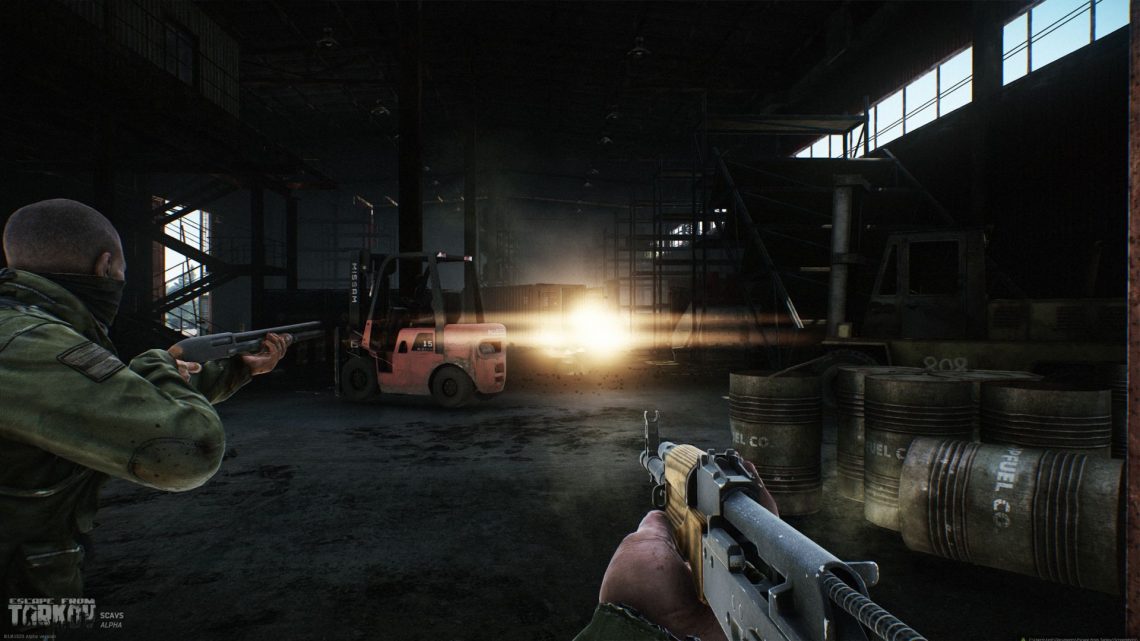
‘Escape From Tarkov’ Devs Really Want You to Know Why You Can’t Play as a Woman
January 7, 2020You, like me, might not have heard of the game Escape from Tarkov until a few days ago, when it exploded on Twitch, several years after entering early access. It’s a punishing shooter with some incredible, terrifying quirks. Your friends aren’t marked in the interface, so it’s easy to kill them. When you pick up a new clip of ammo, you have to literally check the clip to see how much is actually there. It’s also a game where you can’t play as a woman, a failing common to a lot of video games that might have been overlooked, were it not for the inflammatory comments made by the game’s developers in the past—and this week.
In 2016, the game’s developer, Battlestate Games, told Wccftech that they “came to the conclusion that women are not allowed to be in the war” after discussing the topic for “a very long time” and decided “women couldn’t handle that amount of stress.” Men, as we all know, are incapable of feeling anxious and always act rationally in high-stress situations. But that was 2016, seemingly a decade ago, and maybe things had changed since then? Possibly?
In a series of tweets, however, Battlestate unequivocally answered “no.” After trying to handwave the old interview as being “misinterpreted,” Battlestate said the employee had been “reprimanded” (??) and they “always respected women in wars and military women.” In what then felt like a longwindup to say they “appreciate the feedback,” Battlestate threw a curveball and said women would appear in the game’s story, but there would be no playable women because of “game lore” and the “huge amount of work needed with animations, etc.”
A series of follow-up questions to the game’s developer—what specific lore prevents this, could the lore be accommodated in the future, are there plans to staff up given recent success and potentially expand the character models available—have gone unanswered.
If it all feels like a familiar song and dance, that’s because it is! We’ve been down this road before many times, with all sorts of different, strained rationalizations that ultimately arrive at the same place. Creating different character models, women or otherwise, is a matter of prioritization. What you choose to prioritize becomes a measurable representation of values.
The thing that made me roll my eyes at this latest development was A) what they said and B) why they chose to say it. This turned into a story because, suddenly, Escape from Tarkov was a game people wanted to click and read about and an old interview, discovered because of that popularity, went viral. This is a natural cycle that plays out all the time in the media and social media platforms. People are talking about X, so media talks about X.
There was nothing demanding that Battlestate say anything at all. They weren’t on a press tour, they weren’t in front of journalists at E3 who were pestering them with questions. They are a small studio with a janky, obviously in-progress game that’s suddenly become a phenomenon. They could have plausibly claimed that everything is a work-in-progress right now and they’re listening to feedback. Vague enough to satisfy an audience looking for the developer to show some sense of capitulation and a different audience who hopes they won’t give in to what they perceive to be a social justice mob. Both audiences get unsatisfying conclusions, but ones that allow them to turn the page. The social media cycle moves onto the next thing.
The reason I bring this up isn’t to wish for an alternative world where Battlestate better recognized the benefits of a milquetoast statement, but to examine what’s been revealed by the fact they didn’t choose that path. We live in a world where it’s better to ignore a problem than to say anything. There were a million alternatives Battlestate could have settled on here, but instead chose the one that could easily be interpreted as winking at folks genuinely saying “female will be smaller, harder to hit.”
In doubling down with the same flawed logic used by bad faith actors trying to extract demands in the other direction, they said a lot more about their culture and values than their options for player avatars ever could.
Follow Patrick on Twitter. His email is patrick.klepek@vice.com, and available privately on Signal (224-707-1561).


